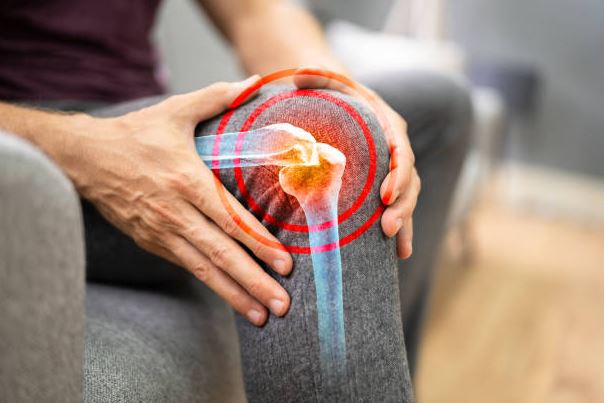
Joint pain affects a significant number of individuals, particularly those over the age of 50, as reported by the University of Michigan National Poll on Healthy Aging.
Approximately 70 percent of people in this age group experience joint pain occasionally. Understanding the causes and preventive measures for joint pain is crucial for maintaining overall joint health.
Expert Advice from Dr. Georgiy Brusovanik
Dr. Georgiy Brusovanik, an orthopedist and spine specialist at Spine Doctor Miami, to provide insights into managing and preventing joint pain.
Causes of Joint Pain:
Dr. Brusovanik highlights that joint pain often results from joint degeneration due to the natural aging process.
Recent research emphasizes the role of metalloproteinases, specialized cellular teams that play a vital role in clearing degenerative debris, in influencing joint pain. Conditions like osteoarthritis, rheumatoid arthritis, bursitis, tendinitis, and gout are common contributors to joint pain.
Preventing Joint Pain: Maintaining a proactive approach to overall joint health is essential. Dr. Brusovanik offers the following recommendations:
Maintain a Healthy Weight: Excess weight puts additional stress on joints, making them more susceptible to damage. Particularly, the knees, hips, and lower back are prone to overuse injuries.
Exercise Regularly: Engage in low-impact exercises like swimming, walking, and cycling to strengthen muscles surrounding the joints, promoting flexibility, and reducing the risk of injuries.
Adopt a Balanced Diet: Consume a diet rich in antioxidants, vitamins, minerals, and omega-3 fatty acids to support joint and cartilage health.
Maintain Good Posture: Avoid unnecessary strain on joints, especially in the spine and knees, by practicing good posture. This is crucial during activities like weightlifting.
Wear Joint Protection: Use protective gear or joint-supporting devices, such as knee braces, during activities that may cause stress. Avoid high-impact exercises that can strain tendons and cause overuse in joints.
Stay Hydrated: Water lubricates joints, keeps cartilage healthy, and plays a crucial role in maintaining muscles. Hydration is essential for muscle gain and overall joint health.
Avoid Overuse: Repetitive motion (overuse) can lead to asymmetrical cartilage loss, resulting in pain and stiffness. Maintain a normal range of motion to prevent overuse.
Seeking Professional Diagnosis: When experiencing joint pain, seeking a professional diagnosis is crucial. Dr. Brusovanik emphasizes the importance of specific treatment approaches tailored to the cause of pain, whether it’s arthritis, tendinitis, or another condition. Lifestyle modifications, weight management, adequate rest, and the use of joint-supportive devices are also recommended.
Exercises for Joint Pain Prevention: Exercise is key to maintaining low weight, joint flexibility, and muscle strength. Dr. Brusovanik recommends low-impact aerobic exercises such as swimming, cycling, or elliptical training.
Practices like Tai Chi and yoga combine gentle movements with improved balance, flexibility, and strength.
Stretching the pectoralis muscle, strengthening interscapular stabilizers, abdominal toning, hamstring loosening, and balance exercises contribute to overall joint health and help prevent joint pain.
Read more: Arizona License Plates 101: Rules And Guidelines You Should Know
Preventing Joint Pain for Optimal Joint Health

Dr. Georgiy Brusovanik’s insights provide a comprehensive guide to managing and preventing joint pain.
As joint pain often stems from various conditions linked to degeneration, adopting a proactive approach to overall joint health is crucial.
The recommendations, ranging from maintaining a healthy weight and engaging in regular exercise to adopting a balanced diet and practicing good posture, offer a holistic approach to preventing joint pain.
Dr. Brusovanik emphasizes the importance of seeking a professional diagnosis when experiencing joint pain, as tailored treatment approaches are essential for effective management.
Lifestyle modifications, including weight management, adequate rest, and the use of joint-supportive devices, are also highlighted as integral components of a comprehensive joint care strategy.
Read more: The Art Of Aging Gracefully: Strategies For A Happier Senior Life

